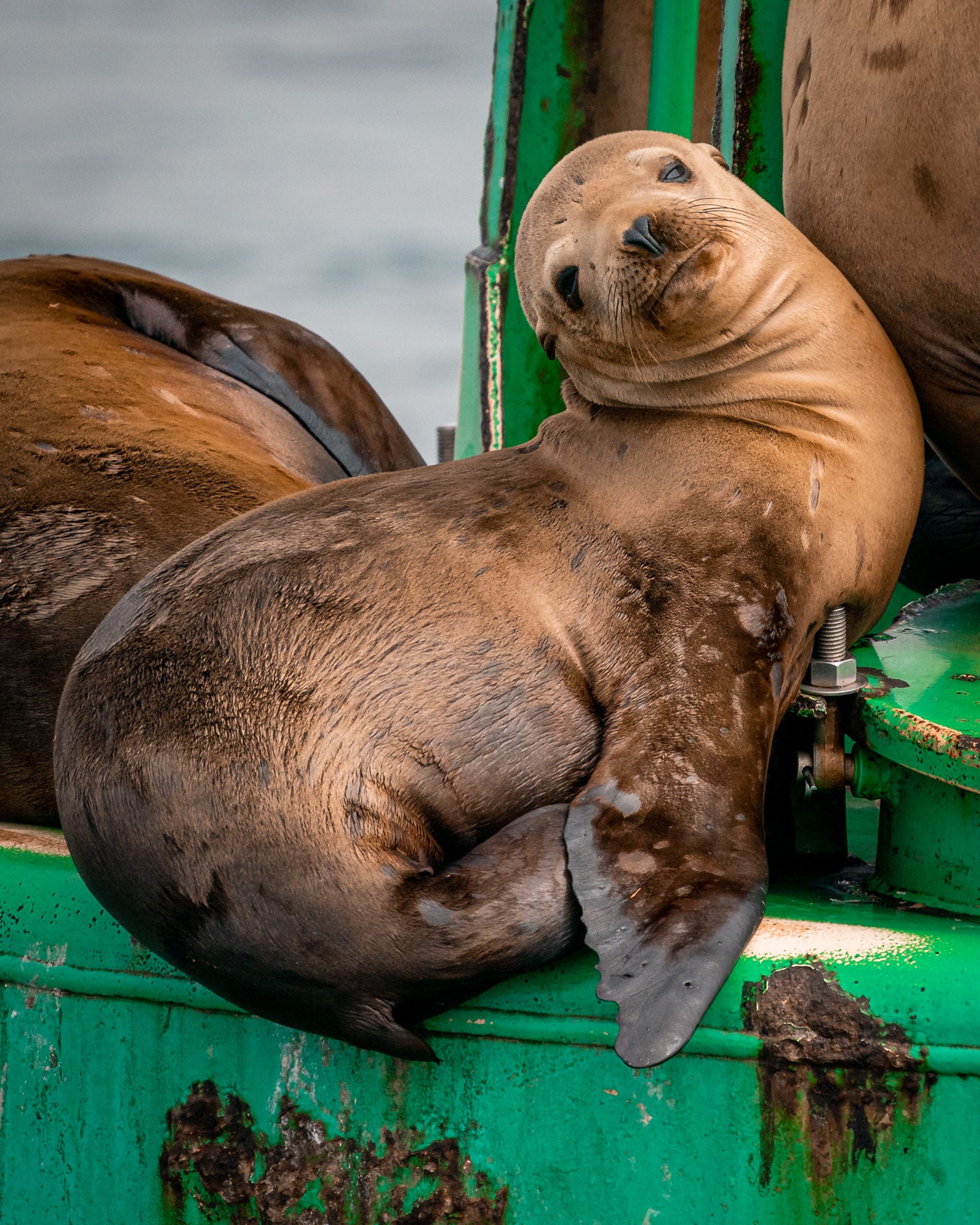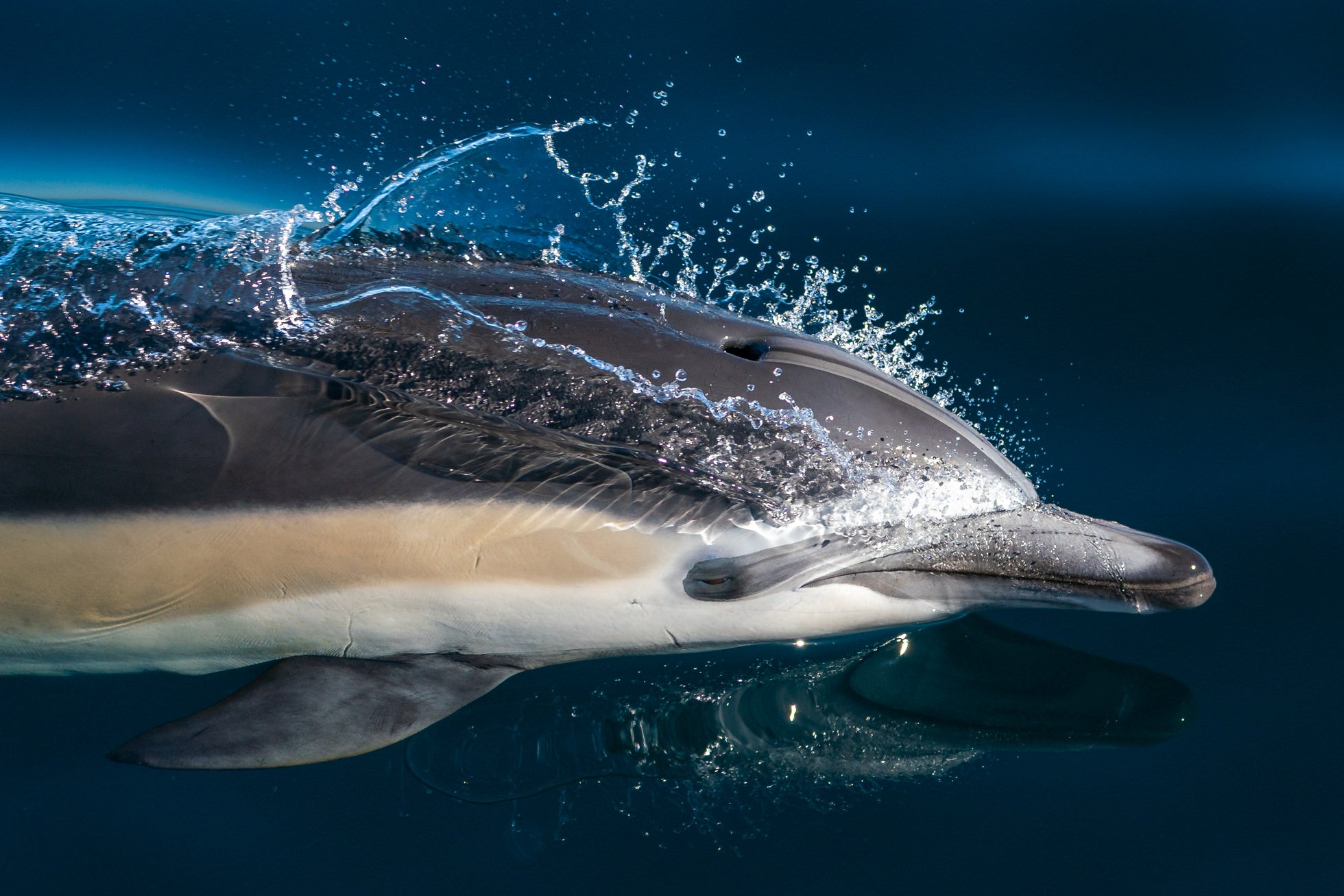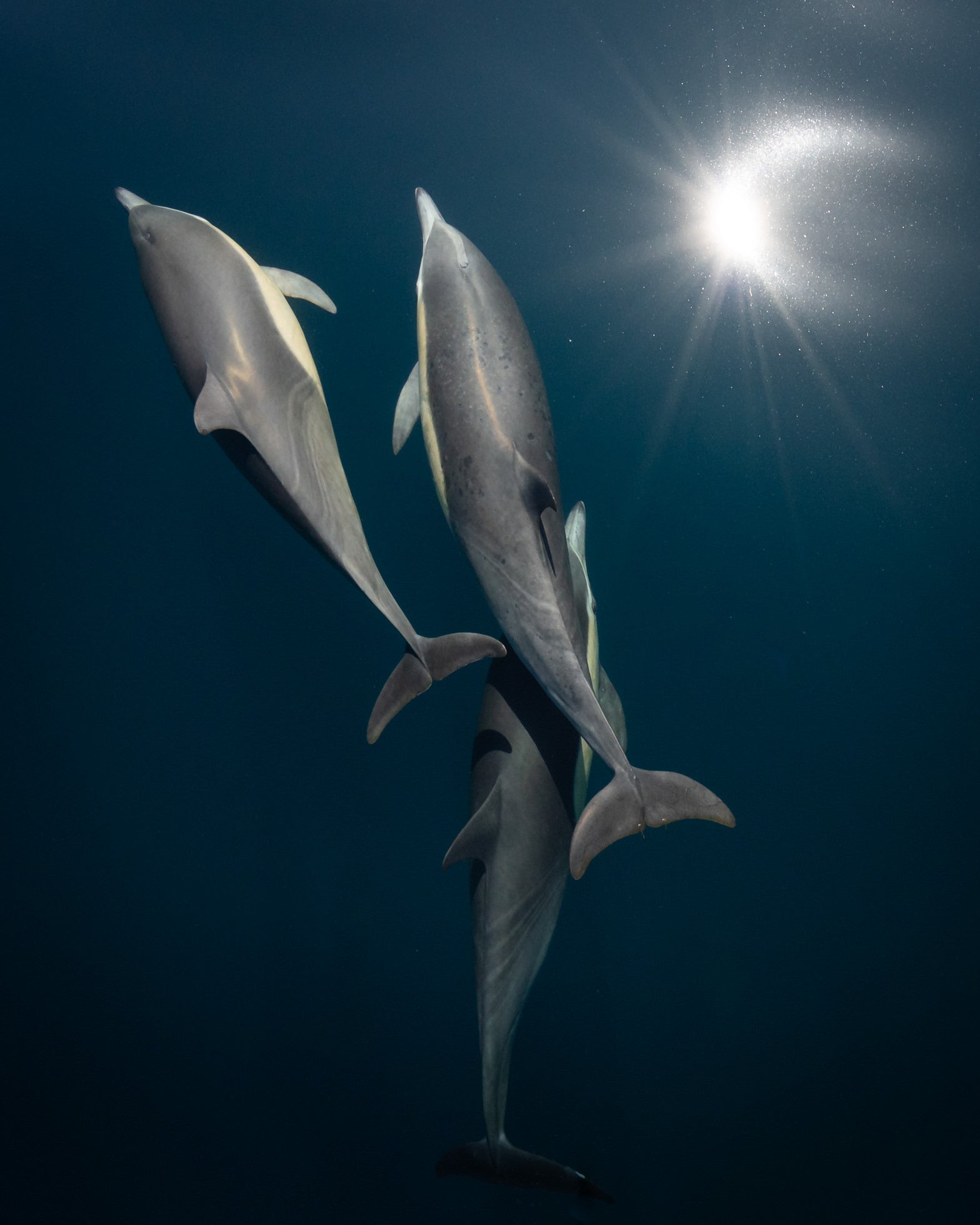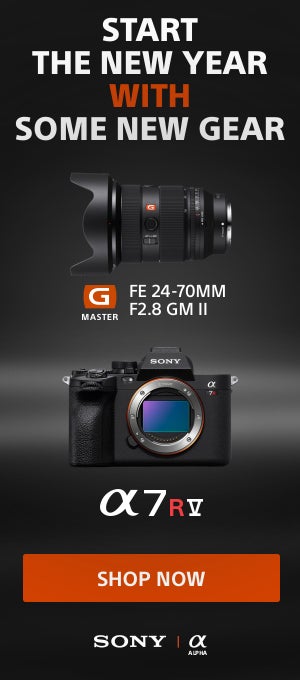We connect with wildlife photographer and researcher Kristin Campbell to learn more about how her research on marine mammals led her to wildlife photography as a creative outlet.
Kristin Campbell is a wildlife photographer and guide in Orange County, California. For her, cameras started as scientific tools to gather data for the National Marine Mammal Laboratory. Her love for capturing the fleeting moments of marine wildlife turned into a creative outlet, and now, while continuing to work as a marine mammal researcher, she also works as a freelance wildlife photographer. We saw her Alpha Universe Profile and connected with her to learn more about her work. Read her story below and create your own Alpha Universe Profile HERE for a chance to be featured on AlphaUniverse.com.
At first cameras started as scientific tools for Kristin Campbell, but her love of photographing marine wildlife quickly turned into a creative outlet. Learn how this wildlife photographer integrated science with art.
Career Snapshot
A camera, which creates art, is also a valuable scientific tool that helps us learn about our natural world. During college, I spent a lot of my time in the mammalogy collection in Seattle’s Burke Museum of Natural History and Culture. With an interest in evolutionary biology and marine mammals, I set out to investigate whether differences in food-resource use in sea otters can be explained by differences in the size and shape of their skulls. For this project I photographed more than 100 sea otter skulls from the museum’s collection in order to create mathematical models that allowed me to compare cranial differences between northern and southern sea otters. After college, I continued using cameras as scientific tools to assist NOAA’s National Marine Mammal Laboratory. I gathered data on orca population dynamics using mark-recapture methods (photographing individual animals), and assisted researchers with remote camera systems used to monitor endangered populations of Steller sea lions in the far Western Aleutian Islands. It wasn’t until I moved to Southern California that I began to integrate science with art.
Photo by Kristin Campbell. Sony Alpha 9. Sony 16-35mm f/4. 1/2000-sec., f/8, ISO 1600
The coastal waters of Southern California are incredibly biologically productive; a juxtaposition next to the bustling urban city of Los Angeles. It is here that I started working as a guide for a small whale watching company and began to document incredible marine wildlife. The lives of many marine mammals remain a mystery as they spend a majority of their time underwater. Capturing fleeting moments with whales and dolphins became a passion for me and a creative outlet. Now, I am fortunate to work on a variety of projects as a wildlife photographer including in documentary films and scientific communication while continuing to work as a marine mammal researcher.
Why I Chose Wildlife Photography
I am interested in animal behavior and mammalian evolution and photography allows me to explore the diversity of species within the animal kingdom. Marine mammals have unique adaptations (flippers, flukes, blow holes, etc.) that have allowed them to live fully aquatic lives. I love taking detailed portraits of animals that showcase their coloration or unique physical anatomy such as the ventral pleats of a humpback whale or the color pattern of common dolphins. Additionally, I enjoy the planning required for wildlife photography; learning about your subject, researching habitats or locations, and targeting specific behaviors. A lot of work and planning can go into a single image.
The ocean is perhaps one of the most challenging environments to work in and it is on boats that I learned how to use my camera creatively. Because of this, my technical knowledge of cameras was accelerated and I got to know what my camera could and could not do for me as a photographer. Whales and dolphins are not easy subjects to photograph. Understanding their behavior is key to capturing a decent image, but an excellent camera can make life a lot easier.

Photo by Kristin Campbell. Sony Alpha 9. Sony 200-600mm f/5.6-6.3 G. 1/2500-sec., f/8, ISO 800
Why I Shoot With Sony
For years I used cameras that were supplied to me from varying brands. During this time, I learned a lot about what limitations or advantages certain cameras had when photographing wildlife. When it came time to buy a personal camera, I knew what features I was looking for. I sought a camera that not only was technically advanced, but also let me explore my creativity. Photographing marine wildlife is especially challenging as you deal with weather, quick subjects, busy backgrounds, varying light conditions, and the need to haul less gear. Sony provided me with a camera system that was perfect for my needs; a lightweight setup that was fast with high quality lenses. I knew I wanted a mirrorless camera over a traditional DSLR and Sony already had years of experience building mirrorless camera systems. Over the last three years I have photographed exclusively with Sony and have been happy with my gear ever since.
My Go-To Sony Gear
Photographing dolphins is similar to photographing birds in flight. However, dolphins remain underwater and break the surface only for a split second. In order to take quality images of marine mammals you need a very fast and responsive camera system so naturally my go-to Sony camera is the Alpha 9. The Sony Alpha 9’s fast burst speed (at 20 frames per second with no rolling black outs) ensures I capture the action, every time. It’s responsive and advanced autofocus system allows me to track animals above or below the water, quickly focusing where I need it to without hunting or grabbing the busy background. Sony Alpha cameras are light and travel well and I don’t feel like I am hauling heavy gear around the boat.
My go-to lens is the Sony 100-400mm f/4.5-5.6 G Master lens. This compact telephoto lens has high resolution across the entire zoom range with fast and accurate focusing that gives me crisp images. Additionally, the optical image stabilization assists me while I bob around in a boat on the ocean. This lens has a robust built quality that doesn’t feel delicate when I am out in the field. I consider this lens a workhorse for wildlife photographers who are on the go or photographing in challenging environments.

Photo by Kristin Campbell. Sony Alpha 9. Sony 100-400mm f/4.5-5.6 G Master. 1/2000-sec., f/4.5, ISO 250
What Photography Means To Me
Photography blends science and artistry. For me, the two disciplines work together as I pursue a path to enjoy and better understand our natural world. Scientific images reveal mysteries of nature or delve deeper into them. They can even elicit an emotional response such as sparking curiosity, providing context for conservation issues, or creating a connection between the viewer and the subject. I realized photography didn’t only have to serve me as a scientific tool, and over the last 5 years wildlife photography has turned into a passion.
As a female wildlife photographer, I often feel I am in the minority. Wildlife photography remains a male-dominated and competitive industry and many talented female photographers fade into the background. I have been told my pursuit of photography is a nice hobby, while watching my male counterparts regarded as professionals. When it comes to career inspiration there is a gender imbalance in the number of role models in wildlife photography. Sony Alpha Female has been a big inspiration for me as a female photographer. Through the Sony Alpha Female community I have found inspiration in other female photographer’s stories and work. Sony has made an effort to highlight and provide opportunities for female photographers and it is within this community that I feel encouraged and supported. (Editor's note: You can join the Alpha Female+ Community by joining the Alpha Female Facebook group, following @sonyalpha and @sonyalphafemale on Instagram and tagging your posts with #sonyalphafemale.)
See more of Kristin Campbell's work on her Alpha Universe Profile.



